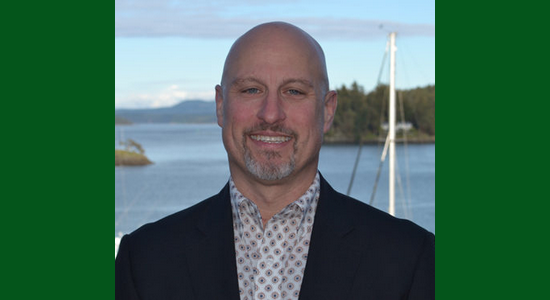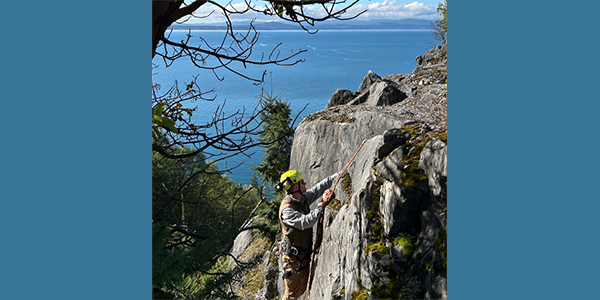— by Samantha Larson for Crosscut.com —
I was traveling from Seattle to Juneau up the Inside Passage with the small-cruise outfitter called Sea Wolf Adventures, but to navigate the shallow delta of the Stikine, the fastest free-flowing river in North America, we took a jet boat. Water gushed all around us, in waterfalls that cascaded down the hillsides and in the chaotically arranged fingers of the delta as they gradually coalesced into a single river. The river begins in Canada but empties into a fertile Alaskan watershed famous for its fish.
I was on the trip to learn about the industries that threaten this awe-inspiring ecosystem – in particular, to learn about the precious metal mining that is happening on the Canadian side of the border. The possibility that something could go wrong at one of these mines is an issue that entangles the lives of the operators of tourist vessels like one I was traveling on, commercial fishermen and environmental activists. Determining the adequate balance of development and conservation in this area requires agreement between Alaskan, British Columbian, U.S., Canadian and indigenous peoples’ governments. Even before factoring in the complex wishes of locals and corporate interests, the issue is messy and intractable.
The boulders at river mouth shrunk into cobblestones and then pebbles. About an hour later, Eric Yancey, our captain, began to slow the boat down. “There it is,” he said.
A barren, deforested gash ran a couple thousand feet up the green slope to our port side — a striking reminder that even though our hull could continue cutting through the water, we were forbidden to continue upstream. Though the landscape looked identical on the other side, we had reached Canada.
If we had gone about 80 miles further northeast, we’d find the Red Chris mine — an open-pit bonanza for gold, copper and silver. In October, a delegation from Alaska, including Sens. Lisa Murkowski and Dan Sullivan, Rep. Don Young, Gov. Bill Walker and Lt. Gov. Byron Mallot sent a letter to Secretary of State Mike Pompeo explaining that they think this and other Canadian mines represent a cross-border threat to Southeast Alaska’s commercial fishing and tourism industries.
(To read the full article, go to https://crosscut.com/2018/11/standing-salmon-alaskas-boundary-waters?utm_medium=email&utm_source=Crosscut%20Daily%20-%20112118 )
**If you are reading theOrcasonian for free, thank your fellow islanders. If you would like to support theOrcasonian CLICK HERE to set your modestly-priced, voluntary subscription. Otherwise, no worries; we’re happy to share with you.**







